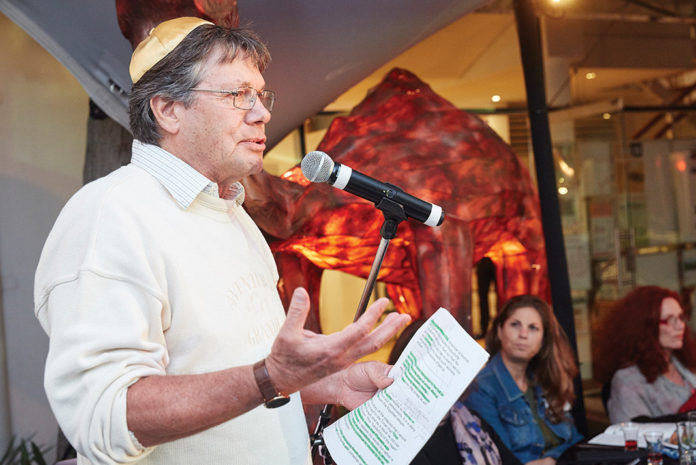“From the slavery of Pharoah’s Egypt to South Africa’s own struggle against oppression, from exodus to freedom, the Passover Seder is a celebration of human rights overcoming human wrongs”.
This was the message printed on the cover of a special haggadah created for the Freedom Seder, hosted by the Cape Jewish Board of Deputies on 6 April. The Seder saw the convergence of high profile politicians, media personalities, leaders of business and commerce, luminaries of the legal profession, academics and activists, coming together in recognition of our ongoing struggle against oppression, prejudice and racism. The purpose of the Seder was to locate our specific history in a global context and to highlight the parallels between our unique cultural legacy and the journey we travel as South Africans.

The tent was decorated with illustrations of ancient Egypt, heaters kept the cold wind at bay and tables were laid with seder plates, matzot and grape juice to resemble a traditional seder. The Herzlia Vocal Ensemble added ruach, intimacy and entertainment with beautiful renditions of Ma Nishtana, Avadim Hayinu, Let My People Go and Dayenu. Justice Dennis Davis led the proceeding with explanations and anecdotes, and our guest speakers successfully translated Passover themes into relevant social and political issues.

Let all who are hungry come and eat: Shelagh Gastrow, Founder and Director of GastrowBloch Philanthropies, and former Executive Director of Inyathelo, spoke of the need to improve the lives of those outside the Jewish community through assisting social change organisations.

Ma Nishtana: Why is this night different? David Bilchitz, Professor of fundamental rights and constitutional law at the University of Johannesburg spoke on the importance of education and its connection to enslavement and freedom.

Avadim Hayinu: We were slaves to Pharoah. Jacques Sibomana, a Scalabrini Centre volunteer who came as a refugee from Rwanda, spoke hauntingly of his own childhood experiences.

The Ten Plagues: Despite protest, pleading and plagues, Pharoah hardened his heart and would not release the Jewish people: trade unionist Johnny Copelyn, CEO of HCI spoke on the power of protest, pointing out how we had all been complicit if only in our passivity in degrading people during apartheid.

The guests participated in reading paragraphs from the specially prepared version of the Haggadah starting with Premier Hellen Zille.
The significance of sharing this rich cultural enactment with representatives of the wider community was not lost on anyone. As we read in the Freedom Seder Hagaddah: “Our story is not yet done. It begins with the journey of those who came before us and it continues with us, now.”











